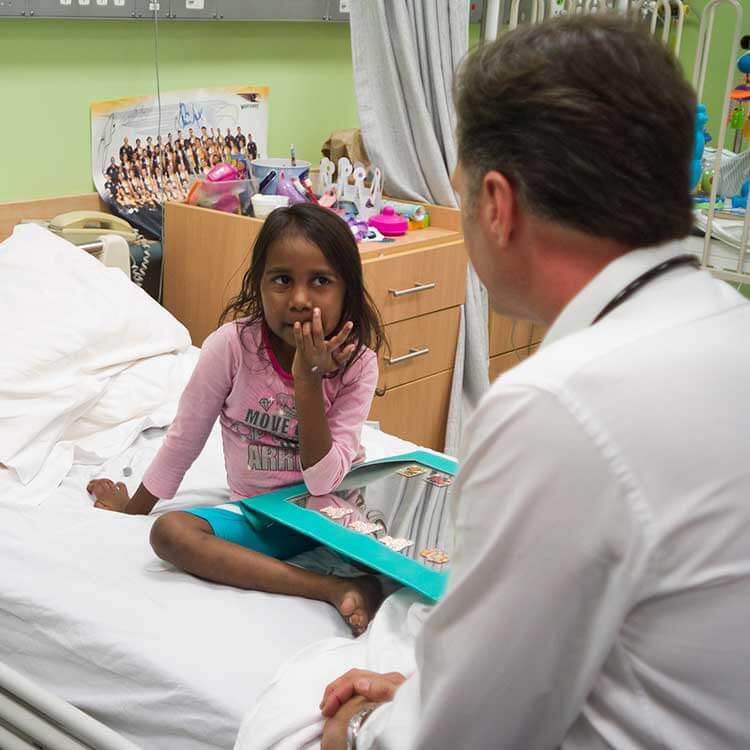Search

News & Events
Bold bid to end rheumatic heart diseaseSome of the nation’s leading medical researchers will converge on Darwin this week to step out a plan to wipe out rheumatic heart disease.
Research
Effectiveness of pneumococcal conjugate vaccine against hospital admissions for pneumonia in Australian childrenReductions in pneumonia-coded hospital admissions in unvaccinated children predominated in non-Aboriginal children with low incidence of pneumonia
Research
An audit of the reliability of influenza vaccination and medical information extracted from eHealth records in general practiceTo evaluate the reliability of information in GP electronic health records (EHRs) regarding the presence of specific medical conditions and recent influenza vaccination
Research
Active surveillance of 2017 seasonal influenza vaccine safety: An observational cohort study of individuals aged 6 months and older in AustraliaAusVaxSafety surveillance demonstrated comparable and expected safety outcomes for the 2017 quadrivalent inactivated influenza vaccine brands used in Australia
Research
The impact of influenza infection on young children, their family and the health care systemInfluenza infection in young children has a significant impact on medication use, absenteeism and the use of health care service
Research
Causes and Clinical Features of Childhood Encephalitis: A Multicenter, Prospective Cohort StudyEpidemic viral infections predominated as causes of childhood encephalitis in Australia. The leading causes include vaccine-preventable diseases
Research
Probabilistic linkage of national immunisation and state-based health records for a cohort of 1.9 million births to evaluate Australia’s childhood immunisation programTo describe the process for assembling a linked study that will enable the conduct of population-based studies related to immunisation and immunisation policy.
Research
Spatial analysis of hepatobiliary abnormalities in a population at high-risk of cholangiocarcinoma in ThailandCholangiocarcinoma (CCA) is a serious health challenge with low survival prognosis. The liver fluke, Opisthorchis viverrini, plays a role in the aetiology of CCA, through hepatobiliary abnormalities: liver mass (LM), bile duct dilation, and periductal fibrosis (PDF). A population-based CCA screening program, the Cholangiocarcinoma Screening and Care Program, operates in Northeast Thailand. Hepatobiliary abnormalities were identified through ultrasonography.
Research
Optimization is required when using linked hospital and laboratory data to investigate respiratory infectionsDespite a recommendation for microbiological testing, only 45% of children hospitalized for respiratory infections in our previous data linkage study linked...
Research
Exploring the dynamics of respiratory syncytial virus (RSV) transmission in childrenWe develop a compartmental model for RSV infection, driven by a seasonal forcing function, and conduct parameter space and bifurcation analyses to document...
